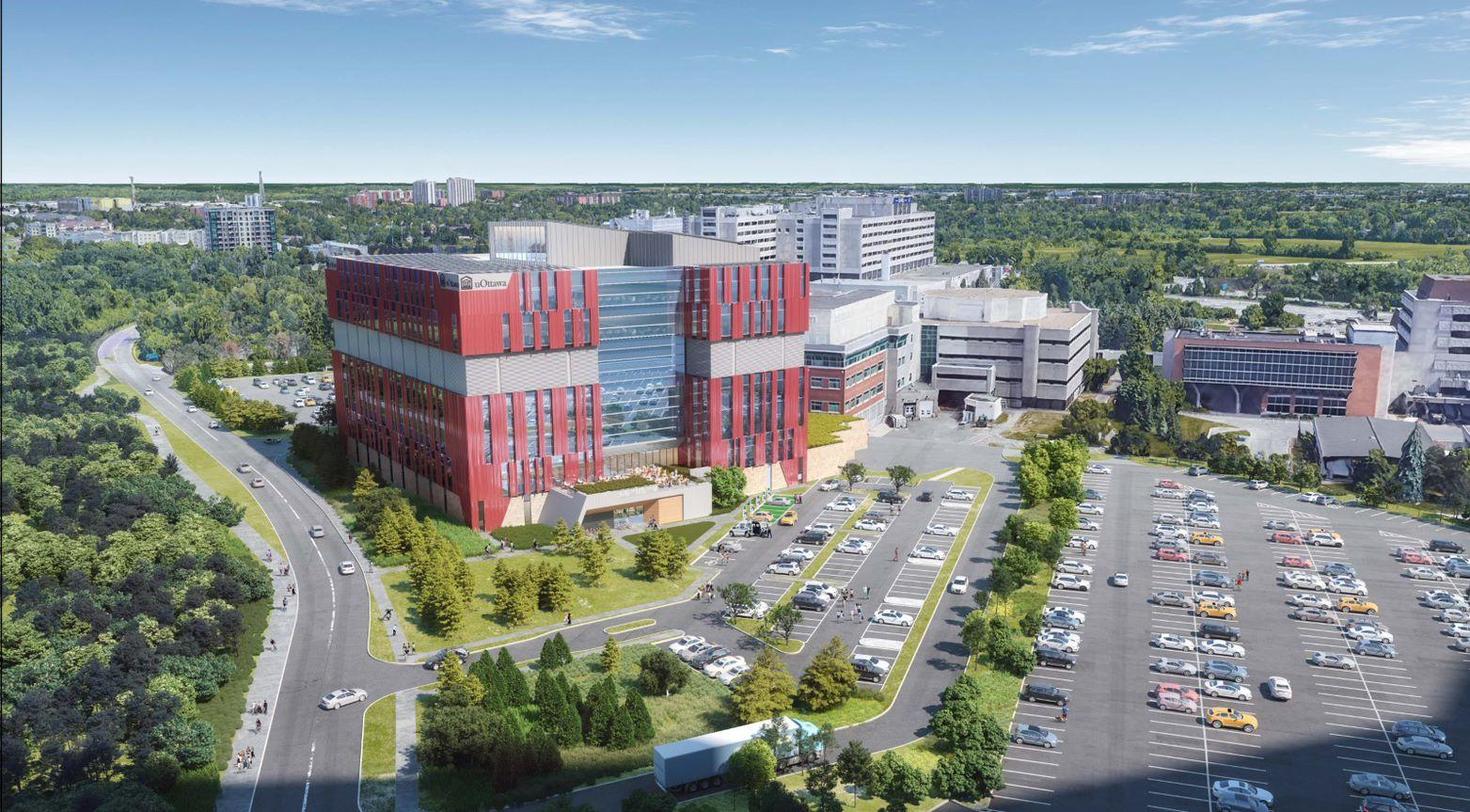Neuroscientist Ruth Slack and cardiologist Dr. Peter Liu say working together closes a troublesome gap in patient care because when something goes wrong in the heart, it has a major impact on the brain. Neurological problems also impact the function of the heart, accelerating disease progression.
“They’re always treated completely separately. Even though they are so closely connected and feed off each other,” says Ruth Slack, Director of the University of Ottawa Brain and Mind Research Institute.
Together, brain and heart conditions are leading causes of disease and death in Canada.
“So how do we change the health system so that we can actually deliver this interdisciplinary care rather than single specialty care?” asks Dr. Liu. “It’s going to save more time as well because the patient can get these problems looked after in concurrent fashion rather than serially.”
Dr. Liu, Chief Scientific Officer and Vice President of Research at the University of Ottawa Heart Institute, is co-leading the University of Ottawa’s Brain-Heart Interconnectome (BHI) with Ruth Slack.
One of his patients, referred to here as Felix to respect his privacy, is a retired professor who suffered from heart failure. The incident led to unexpected cognitive impairments.

“So how do we change the health system so that we can actually deliver this interdisciplinary care rather than single specialty care?”
Dr. Peter Liu
— Chief Scientific Officer at the Heart Institute
“We only recently realized that cognitive impairment and memory loss is a prominent feature in patients with heart failure. A patient’s number one concern is mental health,” says Liu.
This led to a more holistic approach to Felix’s treatment. Adjusting medications and making lifestyle changes have improved the man’s heart function, and mental clarity. Dr. Liu says Felix’s case underscores the necessity of interdisciplinary research and treatment strategies, “His memory has improved, the fog in his brain gone and he’s now ready to write another book!”
At the BHI, research teams are examining a wide variety of medical conditions, everything from multiple sclerosis and mental illness, to strokes and heart disease.
“Depression and anxiety, for example, there’s very strong evidence that this also increases the risk for heart disease,” says Ruth Slack, adding that the same applies to people with dementia.
“There are different forms of neurodegeneration and dementia. It’s at the very early stages that the brain-heart interaction is happening. We often think of dementia or Alzheimer's diseases at the end of life with cognitive impairments. But there’s also those early stages that we’re really interested in looking at, so we can catch this and prevent the acceleration of the disease,” she says.
Supported by a $109 million grant from the Canada First Research Excellence Fund, the BHI aims to accelerate the prevention, detection, treatment and care of brain-heart disorders. And not just here in Ottawa or Ontario, but across Canada and around the world.
Now with more than 45 academic, industry, governmental and non-governmental partners who are exploring every dimension of heart-brain health, the BHI needs more room in a state-of-the-art building with cutting-edge research facilities.
In a couple of years, the BHI will make its new home at the future Advanced Medical Research Centre (AMRC), a new state-of-the-art facility being built by the University of Ottawa near its Faculty of Medicine, the Ottawa General Hospital General Campus and the Children’s Hospital of Eastern Ontario (CHEO).
With 32,500 m2 (350,000 ft2) of advanced research space and other shared facilities, the AMRC is much more than a building. It’s forming a hub for strategic commercialization partnerships with the private sector, along with an incubator investment fund to help get next-generation health technologies and treatments to market.
That is essential for recruiting new talent, according to Ruth Slack.

“The AMRC is a very exciting opportunity because it will bring people together in the same location.”
Ruth Slack
— Director of the University of Ottawa Brain and Mind Research Institute
“The AMRC is a very exciting opportunity because it will bring people together in the same location. There’s also going to be commercialization opportunities where some of the research discoveries can be accelerated into new treatments,” she says.
Dr. Liu says Ottawa is the perfect place for this kind of facility with more than 1,300 scientists, clinical investigators, graduate students, professors, educators, postdoctoral fellows and research support staff. Ottawa is also home to the National Research Council, relevant federal government departments and a burgeoning health and life sciences industry. “In Ottawa, we have a very special environment of a highly educated population and very knowledgeable patients,” he says. “We’re developing a new set of guidelines on the brain and heart connection, which will be the world’s first. By acknowledging this symbiotic relationship between the brain and heart, these updated protocols will break clinical silos and alter the conventional approach to medicine.”
From June 12-14, the Brain-Heart Interconnectome will host its inaugural State of the Science Summit where leading researchers and clinicians from all over the world will share innovative developments in cardiac and neurological health.
The work at the BHI promises future innovations for patient care while offering immediate contributions to clinical practice. Ruth Slack and Dr. Liu both expect their successes will only accelerate at uOttawa’s new Advanced Medical Research Centre.
Make a difference by supporting the AMRC
Fuel Discovery — Accelerate Impact: Together we will find solutions to our most pressing health-care challenges.
Help accelerate innovation, commercialization and patient health.


